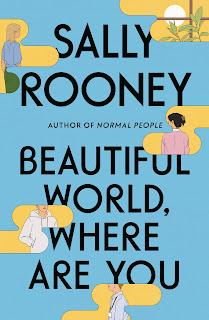The Kite Runner (2003)

"For you, a thousand times over."
A story of a
people's resilience in a country that has endured great suffering. The
Kite Runner, though a work of fiction is very much steeped in real
events, and that makes it all the harder to read. Against the backdrop
of a chaotic period in Afghanistan's history, a growing boy is forced to
confront harsh realities at a young age. These mold his personality and
actions until one day, it sets him down a path he cannot turn back
from. As an immigrant in the US, he grows to understand his childhood
and how religion and politics had forced his family's hand in situations
where right and wrong become blurred.
Our protagonist is Amir,
who also narrates the events as they unfold. He speaks of many fond
childhood memories with his servant's son, Hassan. They grew up together
and played together, even though he is a Sunni Muslim and Hassan is a
Shia. That religious distinction doesn't keep them away from one
another, but Afghan society tells them otherwise. When circumstances
force them to part, Amir's world is forever changed.
The Kite
Runner builds on Amir's relationships with Hassan, his father, and other
key figures in his life. We see from his perspective the changes that
take place, and how they threatened to destroy many lives in the
process. From the Soviet invasion, to the mass exodus of refugees to
Pakistan, and finally the rise of the Taliban, Amir witnesses the
suffering and pain wrecked upon a country he once loved and called home.
Amir is beset by his own guilt and regrets as he matures, all the while
trying to fight against the deep seated religious differences that tore
him away from Hassan.
It's an extremely powerful novel that
shows both sides of the coin. A lot of it is nostalgia for a past that
might never return, and Khaled Hosseini does acknowledge at one point
that the Afghanistan Amir knew was not the 'true Afghanistan' due to his
privileges of being rich. That being said, Khaled is also aware of the
atrocities committed, and depicts them as they are. Amir finds himself
often guilty of being complicit in such events, but one also finds much
sympathy for him as he wrestles with his own demons. In difficult times
people are sometimes forced to make morally questionable decisions,
simply for the sake of survival. As we grow into maturity and look back,
the only thing we can do is try to atone for our mistakes.
By Lycando
-----
I haven't read any book that feels as complete as this. It gives you a detailed insight of the environment which enable you to visualize and feel for them. It's filled with every single emotions at different level.
I hope we can all treat people kinder and with respect and I also hope you have someone in your life that you will say this to, "For you, a thousand times over.".
By Lightfury


Comments
Post a Comment